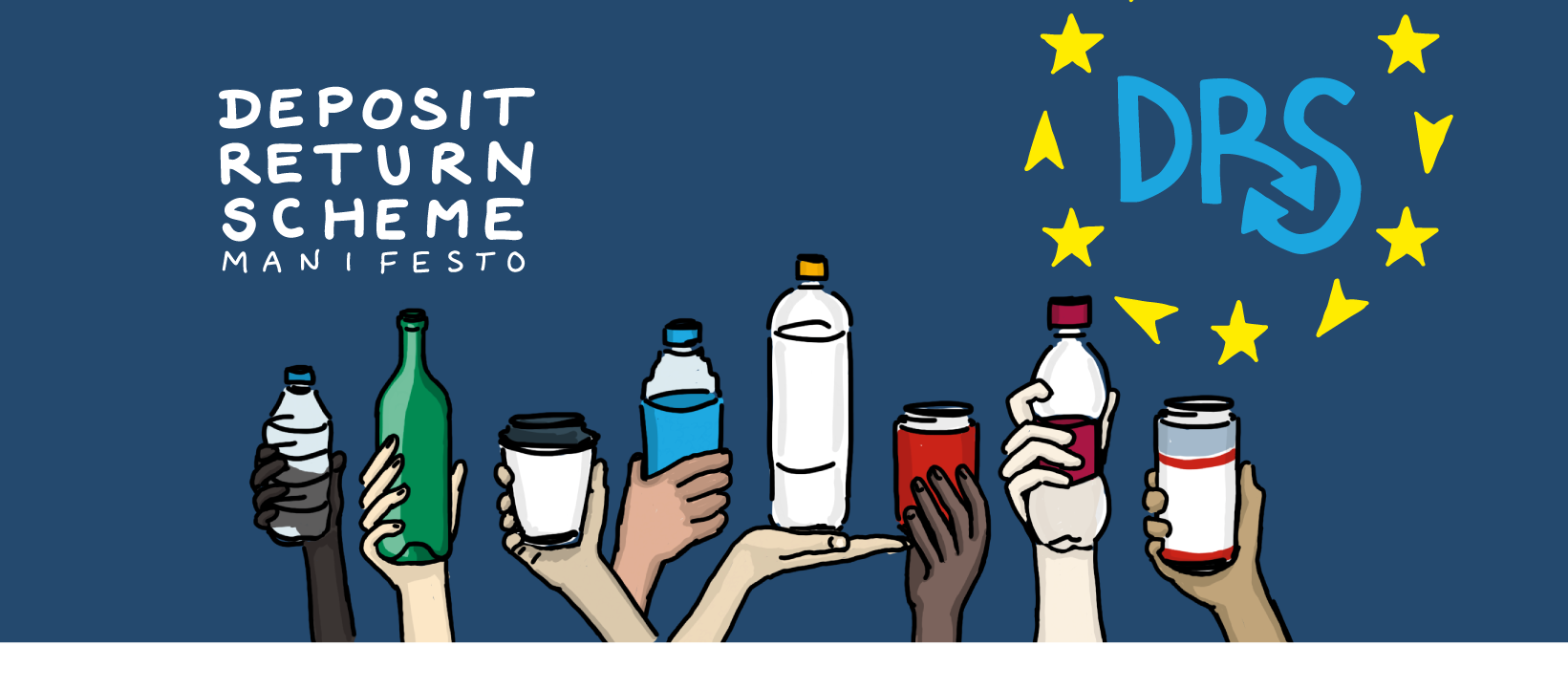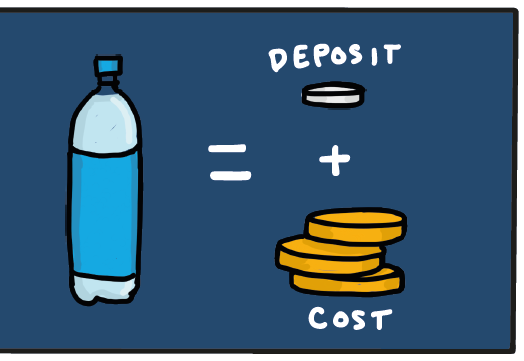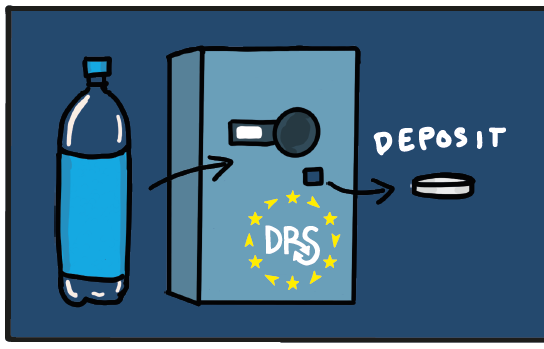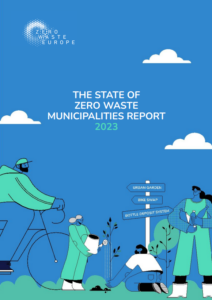Deposit Return Systems: an effective Instrument towards a Zero Waste Future

We want Europe to move towards a Circular Zero Waste Economy that retains value by reusing materials over and over, uses recycling as a last resort and ensures that no waste is leaked into the environment. Deposit Return Systems (DRS) have proven to be the most effective and sustainable way to make this happen.
That is why we wrote, in partnership with other organisations, the DRS Manifesto: a summary of all the benefits Deposit Return Systems can bring and a list of demands to EU institutions and members states to preserve the value of materials in the economy and reduce leakage into the environment.

 DRS is a system whereby consumers buying a product pay an additional amount of money (a deposit) that will be reimbursed upon the return of the packaging or product to a collection point.The system is based on offering an economic incentive for consumers to return empty containers to any shop to ensure that they will be reused or recycled. For beverage containers, these systems are already operating in more than 40 regions worldwide with great results.We believe the use of DRS should not only be the standard in the beverage sector, helping to prioritise reuse through refilling systems, but that it should also be expanded to other sectors such as transport, shipment packaging and other forms of packaging.
DRS is a system whereby consumers buying a product pay an additional amount of money (a deposit) that will be reimbursed upon the return of the packaging or product to a collection point.The system is based on offering an economic incentive for consumers to return empty containers to any shop to ensure that they will be reused or recycled. For beverage containers, these systems are already operating in more than 40 regions worldwide with great results.We believe the use of DRS should not only be the standard in the beverage sector, helping to prioritise reuse through refilling systems, but that it should also be expanded to other sectors such as transport, shipment packaging and other forms of packaging. 1. DRS achieve highest rates of separate collection – around 90% in Europe.
1. DRS achieve highest rates of separate collection – around 90% in Europe.
2. DRS are one of the most efficient instruments to tackle plastic leakage into the oceans and the environment. DRS can reduce drink containers in the ocean by up to 40%.
3. DRS for single-use items could be a stepping stone towards more refill and reuse (which are preferable to recycling), as the collection infrastructure is often the same.
4. DRS result in net savings for municipalities and they do not imply extra costs for public institutions.
5. DRS are the only way to meet the 90% separate collection target for plastic beverage bottles by 2029 set in the EU Single-Use Plastics Directive and will help reach other recycling and landfill targets.
6. DRS is a tool supported by many Fast Moving Consumer Goods companies.
7. DRS for reuse is an effective tool for helping citizens visualise the impact of their actions.
8. Public support rates for DRS are above 80%.
9. When properly implemented, DRS for refillables generate 50% less CO2 emissions than DRS for single-use items.
10. DRS create local jobs and supports a thriving local economy.
11. DRS promote eco-design for better recycling.
12. DRS provide higher quality recyclate, which has a much higher market price.
13. DRS are the best system to allow for bottle-to-bottle recycling.
14. DRS can finance themselves, no matter what system (manual or automatic) is chosen.
15. DRS are an exemplary way to implement the Extended Producer Responsibility principles. We call on EU institutions and member states, as well as competent authorities, to preserve the value of materials in the economy and reduce leakage into the environment by:
We call on EU institutions and member states, as well as competent authorities, to preserve the value of materials in the economy and reduce leakage into the environment by:
REFILLABLE TARGETS
1. Setting ambitious European and national targets of at least 70% by 2030 for the refillables quota for beverage packaging.
DRS FOR ALL BEVERAGES
2. Implementing DRS for remaining one-way beverage packaging and covering all materials.
DRS BEYOND BEVERAGES
3. Expanding the use of DRS beyond beverage containers, such as reusable cups and food containers.You can join us in signing the DRS Manifesto, enter your organisation details in the form below, there is time until the end of October.


